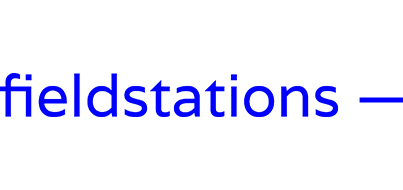Educational Platform: Workshops
The Practice of Taking a Position Towards the World: Collective Manifesto Workshop (Online)
with David Roberts (UCL)
28 APRIL 2023 10 am – 1pm (CET)
The online will take place on zoom. For registration please write to: l.gasperoni@fieldstations.net
In this workshop we will debate, draft, and declare an architectural manifesto as a pedagogical tool that develops an ethical ethos to underpin built environment practice. This exercise creates, as designer Corinne Gisel (2016) puts it, a certain disturbance in the curriculum to think otherwise, permitting critical reflection on the range of consequential and often contradictory values espoused by built environment practitioners in order for both students and teachers to articulate their own values and imagine the practitioner they seek to become.
By rewriting and reimagining historic manifestos, first as individuals then as a collective, we will negotiate and nurture concepts and approaches essential to developing ethical built environment practice: from positionality and situatedness; to reflexivity and relationality. To explicate these terms, I call upon the work of D. Soyini Madison, Felicity Scott, Farhana Sultana and Penny Weiss alongside the Bartlett Ethics Commission led by Jane Rendell.
David Roberts is Associate Professor at the Bartlett School of Architecture, part of collaborative art practice Fugitive Images and of architecture collectives Involve and BREAK//LINE. David’s work engages community groups in London whose livelihoods are under threat, empowers ethical reasoning in built environment practice, and extends architectural education to primary school children.
——
Great Game
with Valeria Federighi, Camilla Forina and Tommaso Listo
(Politecnico Torino)
4 JUNE 2024
12 am – 2 pm (CET)
In the workshop participants will have a unique opportunity to test some sections of the Great Game with the objective of discussing one of its main issues. The Great Game is a design studio developed by Valeria Federighi at the Politecnico Turin (in the Fall Semester 2023/204 in cooperation with Tommaso Listo and Camilla Forina). It focuses on the Kiruna the northernmost city in Sweden, moved and partially rebuilt due to the development of the Kirunavaara mine. In this pedagogical practice, students are situated within controversies that are given at the beginning – based on existing conditions on the ground and negotiated through the game under the direction of the teaching staff.
The main objective of the Great Game, which in the last years was applied to places such as Detroit, Stazzema, Kiruna, is to give students specific tools (and words) to define design actions in terms of strategy, rather than composition or form, through a theoretical background that explicitly refers to Actor-Network Theory and STS.



